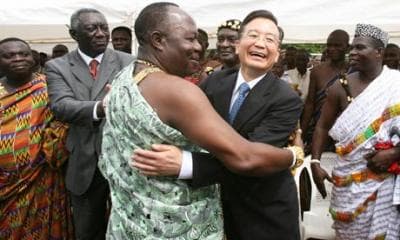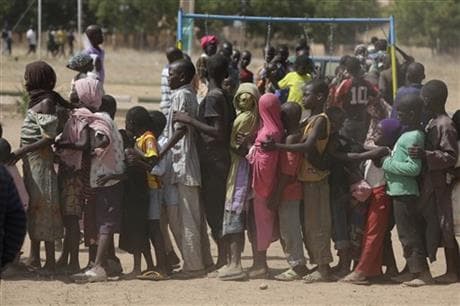The Islamic terrorist group Ansar Dine‘s unexpected takeover of Mali in 2012, threw the once-peaceful country into chaos. But before all would be lost, Dr. Abdel Kader Haidara (pictured) of the Mamma Haidara Manuscript Library and the wider Malian community sprung in to action to save about 355,000 of ancient texts of Timbuktu, which date back to the 11th through 18th centuries, according to allAfrica.com.
RELATED: Mali’s Songhoy Blues Rebel Against Islamic Terrorists with Music
Once Ansar Dine used the coup d’etat as an opportunity to dominate the country and implement Sharia law, Haidara’s first concern was the fate of the ancient texts that include not only the history of West Africa, but also knowledge on astronomy, medicine, human rights, and otherwise lost passages of the Koran.
“I went to some buildings, administrative offices which were pillaged. I saw lots of important administrative papers all over the town and that really, really shocked me and I thought automatically of the manuscripts because those manuscripts are also made of paper.”
Rather than standing idly by to watch the impending destruction, Haidara mobilized a number of families to move the sacred texts to a safe place. These same families were originally the keepers of many of the documents and had given them to the library for safekeeping.
“We agreed to put the manuscripts from the libraries into metal cases and then bring them to different families. And that is what we did at the beginning.”
The result?
All but 4,202 manuscripts were saved.
By June, Haidara, who is also the president of SAVAMA DCI, which is a non-governmental organization that safeguards and values manuscripts in order to defend Islamic culture, traveled from the Sahel to Brussels with the texts.
Africa at BOZAR Project Manager Kathleen Louw describes Haidara’s journey, “He came with them in his suitcase so he carries them personally, they travel business class with him”, she laughs. “They arrive and we don’t have to organize a special transport independently from him, he’s their guardian.”
Now some of the human rights tracts and ancient Korans can be seen along with 16 texts at the “Timbuktu Renaissance” exhibit at the Center for Fine Arts in Brussels, Belgium.
All of the documents and texts were curated by Haidara for the exhibit.
Of the saved texts on display, Haidara explains, “We chose these manuscripts to show the different subjects in the texts. Here you see two that speak of astronomy. Look at the designs here”, Haidara tells RFI as he walks through the display cases. “And here is a manuscript that is about mathematics. You see the calculations, the results. And here is one that speaks about human rights. And here’s one about philosophy.”
AllAfrica reports:
So what secrets, if any, can be unlocked by these manuscripts? Haidara points to a tract sheathed in leather, written by Al Hajj al Martel, a Mali sage who, while on his way to Mecca for a pilgrimage, found that a war had broken out between Borno state and Sokoto state in present-day Nigeria. Martel stayed to mediate.
“And when it was finished, when the war was over, al Hajj al Martel wrote about everything he used, such as diplomacy, the arguments he took from the Koran, the arguments he took from tradition, the ancient examples that he learned from old manuscripts; he wrote all of this here”, Haidara says, pointing to the document.
Therefore, Haidara contends that many of today’s problems, including the devastation being waged by Boko Haram in Nigeria, could be solved with the knowledge found in those texts.
“These manuscripts were never published, never translated and they can perhaps help us resolve a big part of today’s problems, which is conflict.
“[They are a] good example to settle problems. Therefore we’d like to translate this and to publish it in English and send it to Nigeria and in French and send it to Europe and in local languages in Africa, we can send it all over for people to understand that we have to return to reality.”
SEE ALSO: New War, Old Judgment: The Study of Political Violence in Africa, Part 1













